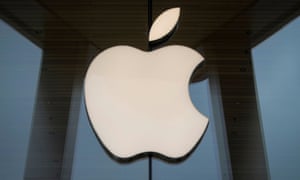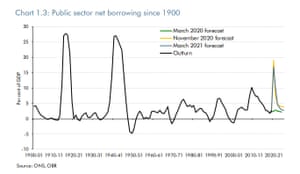Rolling coverage of the latest economic and financial news
Updated

The City of London this week.
Photograph: Hollie Adams/Getty Images
-
06:23
UK competition regulators investigates Apple over App Store complaints
-
05:42
IFS criticises cliff edge end to universal credit boost
-
05:38
Resolution: UK living standards to stagnate even after Covid crisis fades
-
05:31
Builders grapple with raw material shortages
-
05:12
UK construction returns to growth, as cost pressures mount
-
04:28
Worst February since 1959 for UK car sales
-
04:10
FTSE 100 drops in early trading
IFS criticises cliff edge end to universal credit boost
One of the UK’s leading thinktanks has criticised Rishi Sunak’s plans for an abrupt end to the £20 a week increase in universal credit, calling the decision not to phase out the uplift “remarkable.”
In its post-budget analysis, the Institute for Fiscal Studies contrasted the way in which the furlough, stamp duty holiday, the cut in VAT and business rates support were being phased out, with the cliff edge for universal credit (UC) in September.
Paul Johnson, the IFS’s director, said pressure would mount to maintain the £20 a week increase, even though it would cost the Treasury £6bn a year.
“It is, by the way, remarkable that while the chancellor felt the need for a gradual phase out of furlough, business rates support, stamp duty reductions and VAT reductions he is still set on a cliff edge reduction in UC such that incomes of some of the poorest families will fall by over £80 between one month and the next. Whatever the case for cutting generosity into the longer term, if you’re going to do so the case for doing it gradually rather than all at once looks unanswerable.”
Resolution: UK living standards to stagnate even after Covid crisis fades
Analysis of Rishi Sunak’s budget is pouring in this morning, with warnings that household incomes face a painful squeeze.
My colleague Jasper Jolly explains:
The real earnings of UK workers will fall this year and remain stagnant after that even as the economy recovers from the coronavirus pandemic, according to analysis of the budget that suggests the government will oversee one of the worst periods for UK living standards on record.
Incomes will lag behind inflation during 2021-22 – meaning living standards will drop – and will only rise by an average of 0.3% annually over the course of the next four years, according to the Resolution Foundation, an independent thinktank.
It will be the worst inter-election period for real household disposable income on record, barring the short parliament of 2015-17, when David Cameron and then Theresa May were prime ministers. That parliament was marred by a spike in inflation following the Brexit referendum result.
The overnight analysis of Wednesday’s budget suggested that Rishi Sunak, the chancellor, will have significantly more work to do if the government is to improve UK living standards – or to reach his stated goal of reducing the share of public net debt relative to GDP.







